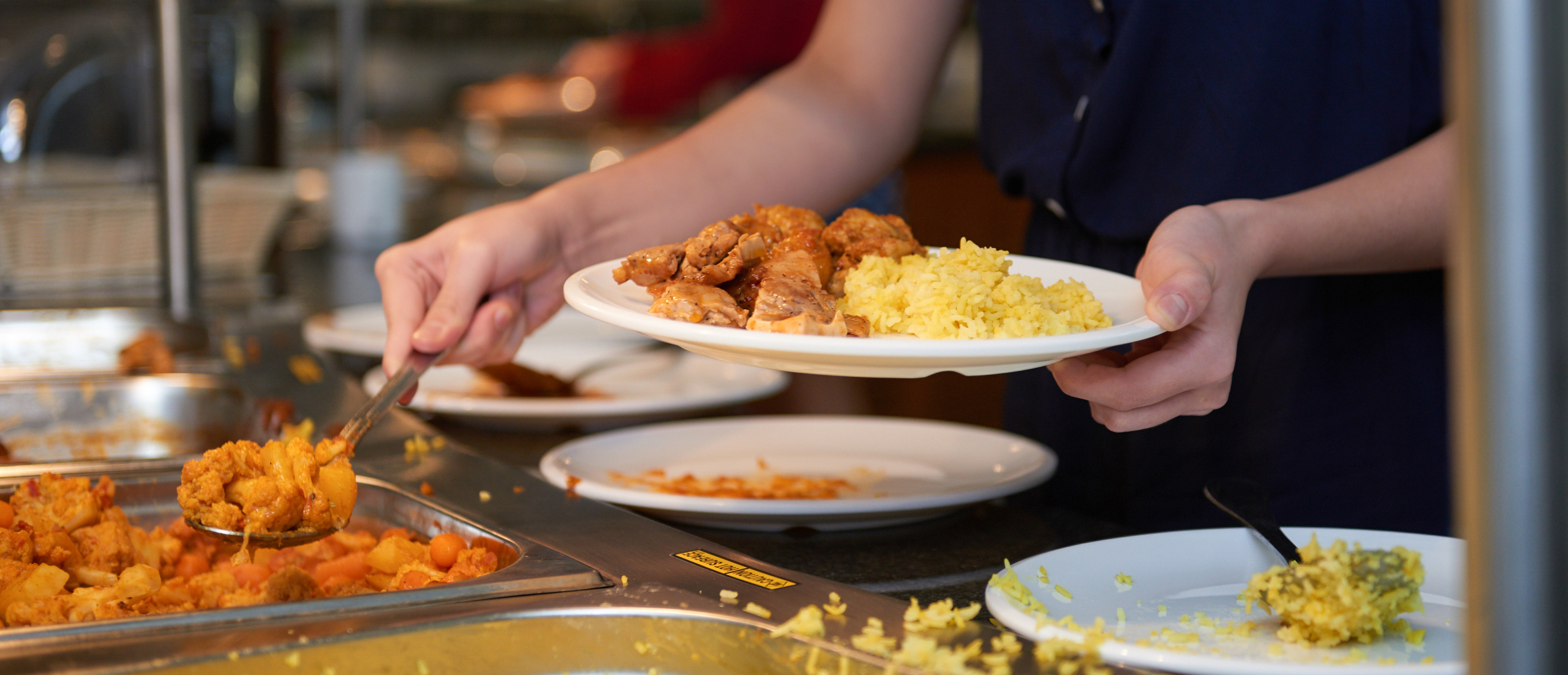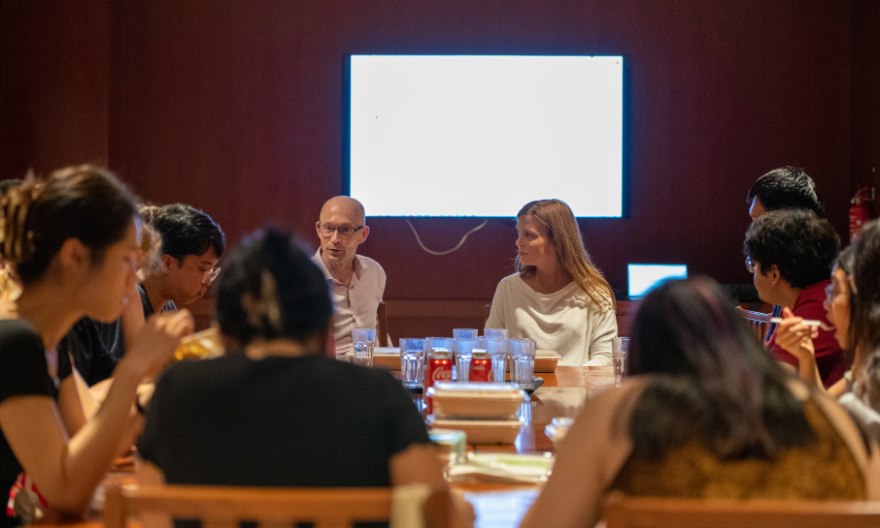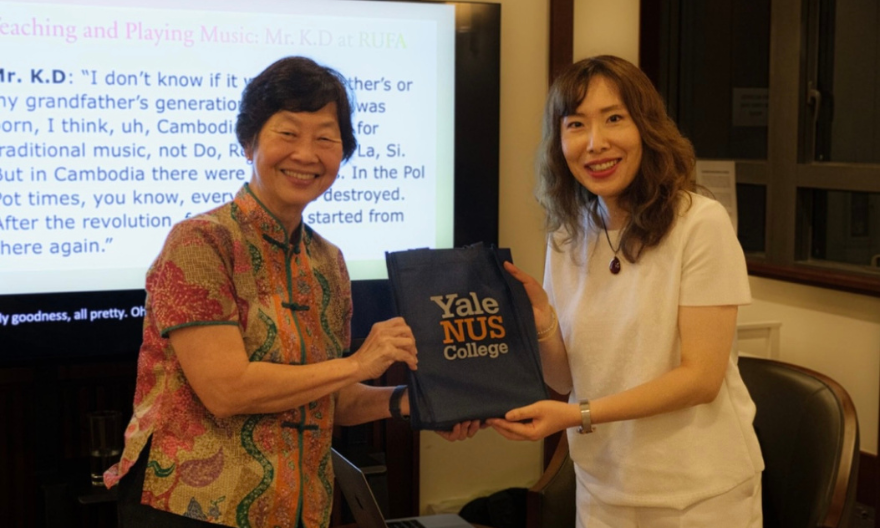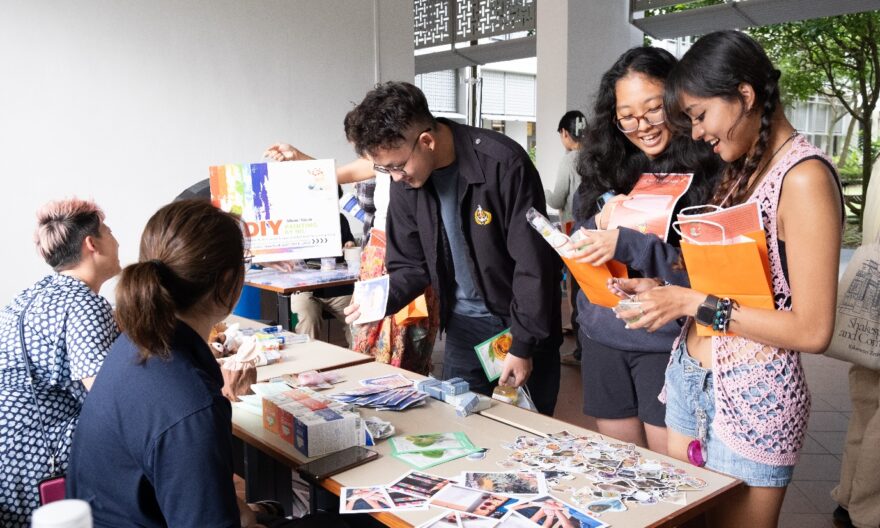Staff and faculty bond over Lunch Tag initiative

In 2014, four Dean’s Fellows who previously studied at Yale University introduced the Lunch Tag initiative at Yale-NUS College with the aim of fostering a sense of community among students across all Residential Colleges and academic years. To do this, they paired students up randomly to meet over a meal of their choice. Three years on, the Lunch Tag initiative has grown exponentially in popularity at Yale-NUS College as students relish the opportunity to go beyond their usual social circles and meet new people. In September 2017, a new form of the Lunch Tag initiative was introduced, catering specially to the staff and faculty. The Staff and Faculty Lunch Tag was rolled out by Dean of Faculty and Professor of Social Sciences, Joanne Roberts.
“Since joining the college in January 2017, I have observed that most staff and faculty members across the various departments are not very well acquainted with one another. There’s a natural tendency for staff and faculty, whom often have busy and separate schedules, to eat with the same people all the time. Thus, I felt that a Lunch Tag initiative would be a low-cost, personal but very rewarding programme to foster a sense of community and bridge the gap between staff and faculty,” shared Dean Roberts.
The Staff and Faculty Lunch Tag uses the same algorithm as the student Lunch Tag. However, contrary to what its name suggests, it is also open to students who are keen to interact with the staff and professors outside of the classrooms. Of the 35 people currently signed up in the Staff and Faculty Lunch Tag, six are students.
“I particularly like how Lunch Tag operates on a very casual basis; unlike professional networking sessions, Lunch Tag is a refreshing and interesting way for me to meet people beyond my usual scope of work. I had a meal with a student and getting to know what’s happening on the ground was both eye-opening and useful,” shared Ashlyn Thia, a Senior Executive at the Dean of Faculty Office.
What is special about Lunch Tag is the inherent spontaneity within it. Some participants fondly recalled how Lunch Tag dates could easily evolve from a one-to-one tag to a group meal, or how conversations covered a myriad of topics, from discourse about intellectual matters to sharing about personal experiences. In the same vein, many of the participants shared that the sessions provided an alternative channel for the nurturing of both old and new, professional and personal connections.
“My first session was with a professor whom I’ve been working with for a long time. However, it was only during lunch where I got to know him better – about his research and family,” recalled Ms Thia.
Similarly, Dean’s Fellow, Detmer Kremer, remarked, “My work mainly revolves around the residential space of the College so it’s difficult for me to get to know people from other divisions. Through the Lunch Tag, I’ve had some very insightful and informative meals with faculty members. For example, I had a meal with Assistant Professor of Social Sciences Zachary Howlett and he shared about his graduate school experience with me. As someone who is thinking of attending graduate school, his advice helped me a great deal in managing expectations, and reconciling graduate school with my aspirations and passions.”
Moving forward, the Staff and Faculty Lunch Tag is expected to follow the same growth trajectory as the Student Lunch Tag. Dean Roberts believes that although the current uptake is small, natural growth will follow given the nature of the initiative. As more people find value in doing it, positive experiences will be shared on the ground and more will be motivated to participate. As a small College with a strong focus on establishing itself as a community of learning, the Lunch Tag initiative fits right into achieving this mission.
In the words of Dr Howlett, “Yale-NUS is full of wonderful, nice people. It really pays to take a few minutes out of your day to get to know the people you are working with. Through Lunch Tag, I’ve made new friends, and I’ve learned to appreciate the College in a more holistic way. I feel that I’ve grown much closer to the life of the institution.”




